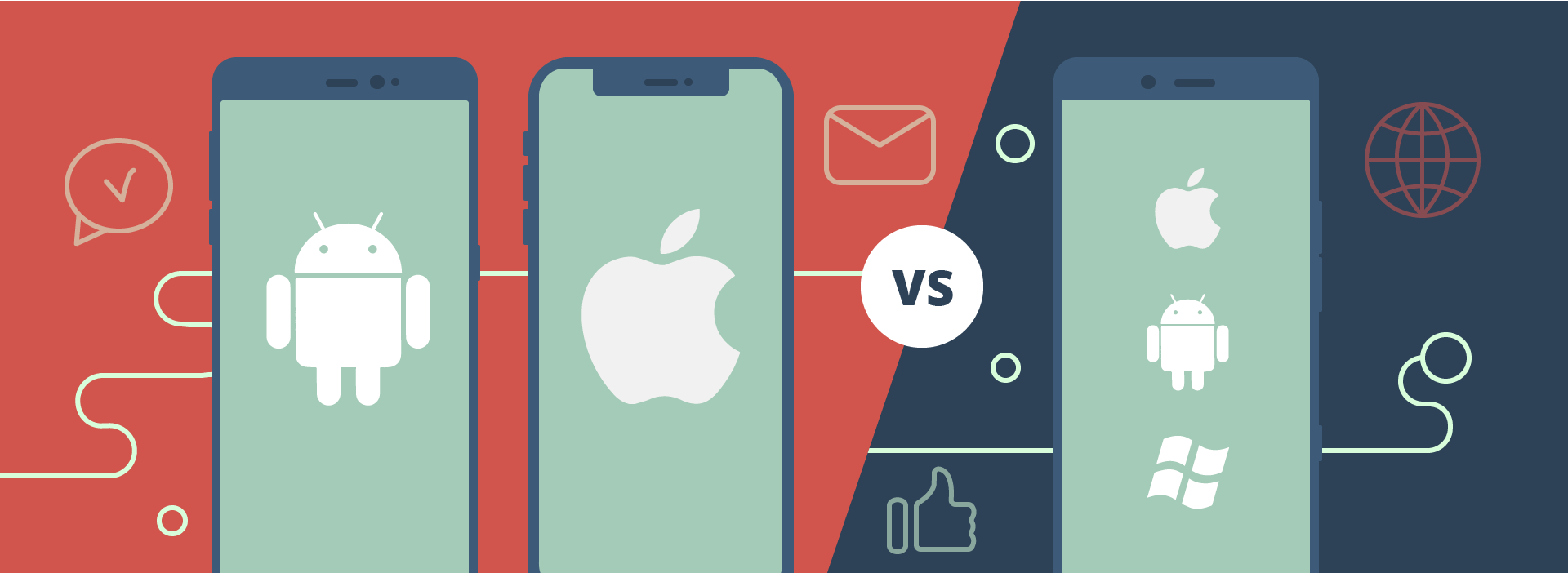Just like anything else, mobile development has also evolved with the change of time.
Gone are the days when mobile apps development used to be only iOS and Android-centric. To have better customer reach and make most of the mobile app, businesses have to consider about WebApps and cross-platform apps.
Each one has a different purpose and demands certain specific expertise. Before you make a decision, understanding the differences, similarities, and various other aspects of all these mobile app development processes is a must.In this article, you’re going to bring some of the crucial attributes of mobile app development to help you make a wise decision.
The Basics
Before we delve deeper, let’s understand what we mean by all these mobile app development types.
WebApps- No download and set-up hassles
Webapps are browser-based apps that don’t demand any download and installation since they are hosted on web pages.
Pros
These apps let the end-users access them on all the operating systems and browsers. Such as app is bliss for end-users when it comes to usability and utility. They are readily available.
For businesses, having such an app means having instant accessibility to the customer database.Also, WebApps development is easy on the pocket and is not too demanding on the development front.
Cons
But, not everything is rosy and shiny about Web Apps. These apps have restricted functionality as they depend on internet connectivity to work. If speed is poor or the internet is not available, WebApps are of no use.
Native App – Aplatform-specific solution
A native app is a dedicated solution to a particular platform. Such apps are designed using a specific language supported by the targeted platform.
For instance, a native iOS app will be developed using the Swift and Objective-C app and will not work on Android devices.Similarly, an Android native app will be developed using Java and Kotlin and can only be used on devices that support the Android OS.
Pros
The perk of having a native mobile app is optimized performance as they meet the majority of the compliance.These apps are available via App Store or Play Store on Android and iOS devices. These are the default marketplaces for mobile users and are equipped with every possible tool to resolve the technical issues in native apps. Also, the SDK of native apps is well recognized by the respective app store. Hence, fast and smooth performance is a sure thing.
One another notable benefits of having a native app are a better UI/UX experience. As native apps have amazing device compatibility and gel-up well with device features like camera, microphone, GPS, and others the like.
They automatically integrate with these features and allow end-users to have a seamless experience.
Cons
But, there is a catch. The development of native apps is both a tedious and pricey affair.It is also too time-consuming. Consider these factors; we can say that these apps are not for everyone.
Maintenance of native apps is also a bit tedious job.
Cross-Platform App- An Omnipresent Solution
Cross-platform apps are the ones that can work perfectly fine on iOS and Android. Flutter mobile app development is the most preferred solution to build cross-platform apps. There is no need to write apps in a specific language. There are certain languages like C#, C++, HTML5, JavaScript or Ruby on Rails, Unity, and the like that work well on both platforms.
Pros
Developing such as app is like hitting two birds with one stone, as one app can target users of two OS. This way, one can have a better market reach.
The development of a cross-platform app is also not very pocket-heavy. One developer can develop an app for both platforms.
Cross-development apps have less time to market and will help businesses to real benefits instantly.
Cons
The odds of technical failures are higher in cross-platform apps. If the app doesn’t integrate well with the platform, then one has to rewrite it all again, which is too exhaustive.
It is tedious to adhere to the account requirements for both platforms at the same time.If a business fails at this front, the app ranking drops at the app marketplace.
How to Pick One?
The above must have given you clarity on the functionalities and usability of these top three mobile apps types. Now comes the deciding part. The decision should be aligned with the business objectives. While making a decision, keep in mind that:
- How quickly you need a mobile app
- The goal you want to achieve. For instance, whether you want to have better customer reach or you want to provide an amazing customer experience.
- The spending ability or how much you can spend
- The features you want to include in the app
Once you make a choice, based on the above-mentioned points, make sure that
- The API of your mobile app should be reliable and easily accessible.
- The mobile app shouldn’t be a replica of the website. Having a business logo is a good thing. But don’t keep the color scheme and other aspects exactly as same as the website.
- You are building the apps are per your customers’ expectations and requirements.
The Final Say
With a mobile app, businesses can enjoy better customer reach, present their services/products better, pump up the sales, and achieve tons of other things in a blink of an eye. However, it will only happen if the app is developed diligently.There are multiple kinds of mobile apps like native apps, Progressive WebApps, and cross-platform apps. Make a move after understanding what your customers want and how much you can spend on developing a mobile make.
Author Bio:
Chandresh Patel is a CEO, Agile coach and founder of Bacancy Technology. His truly entrepreneurial spirit, skillful expertise and extensive knowledge in the Agile software development services has helped the organisation to achieve new heights of success. Chandresh is fronting the organisation into global markets in a systematic, innovative and collaborative way to fulfill custom software development needs and provide optimum quality services.

